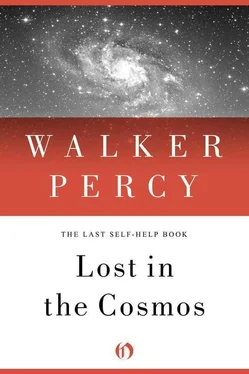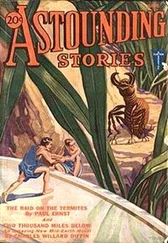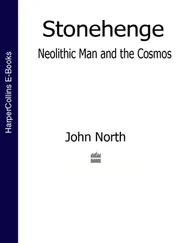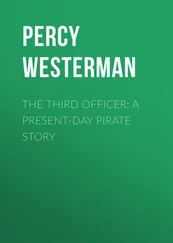The incidence of drug use in teenagers and preteens has increased an estimated 3000 percent in the last thirty years. On a recent talk show on “tough love,” it was claimed that about one-third of all teenagers were depressed. Of the one-third, as many as 75 percent were on drugs.
In one small Southern city, a study of the families of the upper socioeconomic class revealed that 79 percent of the daughters left home after high school, moved into apartments, and either attended college or got jobs. After five years, 53 percent of the unmarried daughters had returned to the homes of their parents and 43 percent of the married daughters … Typical responses: “I didn’t like it out there.” “It is too much.” “I couldn’t cope.” “I got sad.”
In one Midwestern town, 27 percent of high-school students dropped out and stayed home. Chief complaint: “I can’t cope.”
Question (I): Are people depressed despite unprecedented opportunities for education, vocations, self-growth, cultural enrichment, travel, and recreation
(a) Because modern life is more difficult, complex, and stressful than it has ever been before?
(b) Because, for men, competition in the marketplace is fiercer than ever?
(c) Because, for women, life as a housewife is lonelier than ever, what with the vanishing of the traditional community of women around the well, sitting on stoops, gossiping over back fences?
(d) Because, for young people, education is more inferior than ever, leaving one unprepared to face the real world?
(e) Because belief in God and religion has declined and with it man’s confidence in the place of the self in the Cosmos, in the Chain of Being, and in its relation to others?
(f) Because the self nowadays is other-directed rather than inner-directed and depends for its self-esteem on its perception of how others evaluate it — something like a beggar in a crowd with his hand out?
(g) Because the self, despite an embarrassment of riches, is in fact impoverished and deprived, like Lazarus at the feast, having suffered a radical deprivation and loss of sovereignty? With the multiplication of technologies and the ascendance of experts and expertise in all fields, the self has consented to the expropriation of every sector of life by its appropriate expert — even the expropriation of its, the self’s, own life. “I’m depressed, Doctor. What’s wrong with me? If you are not an expert in the field, a doctor of depression, can you refer me to one?”
Thus, the rightful legatee of the greatest of fortunes, the cultural heritage of the entire Western World, its art, science, technology, literature, philosophy, religion, becomes a second-class consumer of these wares and as such disenfranchises itself and sits in the ashes like Cinderella yielding up ownership of its own dwelling to the true princes of the age, the experts. They know about science, they know about medicine, they know about government, they know about my needs, they know about everything in the Cosmos, even me. They know why I am fat and they know secrets of my soul which not even I know. There is an expert for everything that ails me, a doctor of my depression, a seer of my sadness.
(h) Because modern life is enough to depress anybody? Any person, man, woman, or child, who is not depressed by the nuclear arms race, by the modern city, by family life in the exurb, suburb, apartment, villa, and later in a retirement home, is himself deranged.
(CHECK ONE OR MORE)
Question (II): Why do so many teenagers, and younger people, turn to drugs?
(a) Because of peer-group pressure, failure of communication, psychological dysfunction, rebellion against parents, and decline of religious values.
(b) Because life is difficult, boring, disappointing, and unhappy, and drugs make you feel good.
(CHECK ONE)
Thought Experiment: A new cure for depression:
The only cure for depression is suicide.
This is not meant as a bad joke but as the serious proposal of suicide as a valid option. Unless the option is entertained seriously, its therapeutic value is lost. No threat is credible unless the threatener means it.
This treatment of depression requires a reversal of the usual therapeutic rationale. The therapeutic rationale, which has never been questioned, is that depression is a symptom. A symptom implies an illness; there is something wrong with you. An illness should be treated.
Suppose you are depressed. You may be mildly or seriously depressed, clinically depressed, or suicidal. What do you usually do? Or what does one do with you? Do nothing or something. If something, what is done is always based on the premise that something is wrong with you and therefore it should be remedied. You are treated. You apply to friend, counselor, physician, minister, group. You take a trip, take anti-depressant drugs, change jobs, change wife or husband or “sexual partner.”
Now, call into question the unspoken assumption: something is wrong with you. Like Copernicus and Einstein, turn the universe upside down and begin with a new assumption.
Assume that you are quite right. You are depressed because you have every reason to be depressed. No member of the other two million species which inhabit the earth — and who are luckily exempt from depression — would fail to be depressed if it lived the life you lead. You live in a deranged age — more deranged than usual, because despite great scientific and technological advances, man has not the faintest idea of who he is or what he is doing.
Begin with the reverse hypothesis, like Copernicus and Einstein. You are depressed because you should be. You are entitled to your depression. In fact, you’d be deranged if you were not depressed. Consider the only adults who are never depressed: chuckleheads, California surfers, and fundamentalist Christians who believe they have had a personal encounter with Jesus and are saved for once and all. Would you trade your depression to become any of these?
Now consider, not the usual therapeutic approach, but a more ancient and honorable alternative, the Roman option. I do not care for life in this deranged world, it is not an honorable way to live; therefore, like Cato, I take my leave. Or, as Ivan said to God in The Brothers Karamazov: If you exist, I respectfully return my ticket.
Now notice that as soon as suicide is taken as a serious alternative, a curious thing happens. To be or not to be becomes a true choice, where before you were stuck with to be. Your only choice was how to be least painfully, either by counseling, narcotizing, boozing, groupizing, womanizing, man-hopping, or changing your sexual preference.
If you are serious about the choice, certain consequences follow. Consider the alternatives. Suppose you elect suicide. Very well. You exit. Then what? What happens after you exit? Nothing much. Very little, indeed. After a ripple or two, the water closes over your head as if you had never existed. You are not indispensable, after all. You are not even a black hole in the Cosmos. All that stress and anxiety was for nothing. Your fellow townsmen will have something to talk about for a few days. Your neighbors will profess shock and enjoy it. One or two might miss you, perhaps your family, who will also resent the disgrace. Your creditors will resent the inconvenience. Your lawyers will be pleased. Your psychiatrist will be displeased. The priest or minister or rabbi will say a few words over you and down you will go on the green tapes and that’s the end of you. In a surprisingly short time, everyone is back in the rut of his own self as if you had never existed.
Читать дальше












